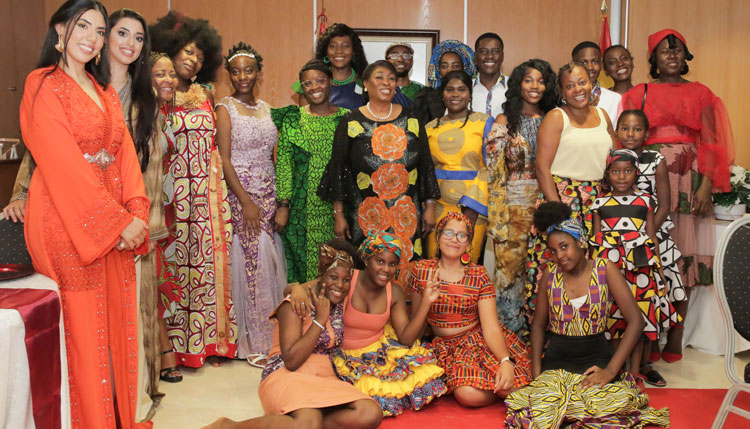Juan David Latorre
The Angolan Embassy celebrated African Women’s Day on Friday, 1 August under the theme Advances in Social and Economic Justice for African Women through Reparations.
The event, part of the celebrations for the 50th anniversary of Angola’s national independence, commemorated the 63rd anniversary of the historic African Women’s Conference held in Tanzania in 1962, which laid the foundations for women’s empowerment in Africa.
During her speech, the Angolan ambassador, Balbina Malheiros Dias da Silva, highlighted “the importance of recognizing and remedying historical injustices resulting from colonialism and the slave trade, whose sequelae continue to disproportionately affect African women who suffer a double burden of discrimination on the basis of origin and gender”. The ambassador stressed that “reparations must be fair, comprehensive and transformative, designed to eliminate structural inequalities and return African women to their central role in building prosperous and inclusive societies in the 21st century”.
“African women continue to face significant challenges in education, access to health and economic empowerment. Economic injustices limit their opportunities and perpetuate social exclusion. It is urgent to invest in the education of African women as a form of genuine reparation, capable of transforming generations and building more inclusive societies,” said the ambassador.
He also called for “adopt a political agenda of restorative justice, which is not limited to financial compensation but promotes structural reforms, investments in educational and economic infrastructures, and the removal of barriers such as child bonding, gender-based violence, Early pregnancies and lack of access to funding and vocational training”.
Ambassador Balbina Malheiros called for transformative reparations for African women, victims of historical injustices that still marginalize them. “Empowering African women, she said, is building a just and prosperous future for Africa. The road to equality is long, but educating a woman is educating a nation,” he concluded.
The event also featured video messages from Eunice Iipinge, president of the Pan-African Women’s Organization, and Mahmoud Ali Youssouf, president of the African Union Commission, who emphasized the need to continue working for equality, the dignity and development of African women in all fields.
The event was attended by the Ambassador of Morocco, Karima Benyaich, who congratulated Angola on the 50th anniversary of its independence and paid tribute to African women, highlighting their role as “guardian of society” and their vital contribution to the economy. Ambassador Benyaich highlighted the progress made on the continent in terms of political and diplomatic representation of women, but warned that there are still important challenges requiring concrete actions in terms of access to training, Inclusive funding and legislative frameworks.
The day continued with a cultural moment by the poet P. Belchior “KKandimblé, followed by the conference Advances in social and economic justice for African women through reparations, given by Dr. Nicole Ndongala Nzojwidi, general director of the Karibu Association, and moderated by Cristina Paulina, expert in women’s health and neuropsychotherapy.
The meeting highlighted the multiple forms of historical and systemic violence faced by African women, from colonialism and slavery to current inequalities, as well as the urgency of reparation policies that recognize and respond to these injustices. “Reparations must go beyond symbolic compensation and transform structures, redistribute power and ensure that African women occupy, with dignity and equity, the place they have historically been denied,” Dr. Ndongala Nzojwidi.
One way in which African women in the diaspora can address existing racism in their countries of residence (Spain) is through self-esteem, acceptance, motivation and integration of the values and cultures of the society in which they find themselves, without losing its original values. For this to be effective, women in the diaspora must invest in education and learning to earn the respect and space they deserve.
The event concluded with a cultural night of African dance (Kizomba and Semba) and parades of traditional and African costumes represented by Angola, Cape Verde, Cameroon, Ghana, Guinea Bissau, Equatorial Guinea, Morocco and Nigeria, thus concluding a journey of reflection, Commitment and celebration of the achievements of African women, with a view to future challenges.
